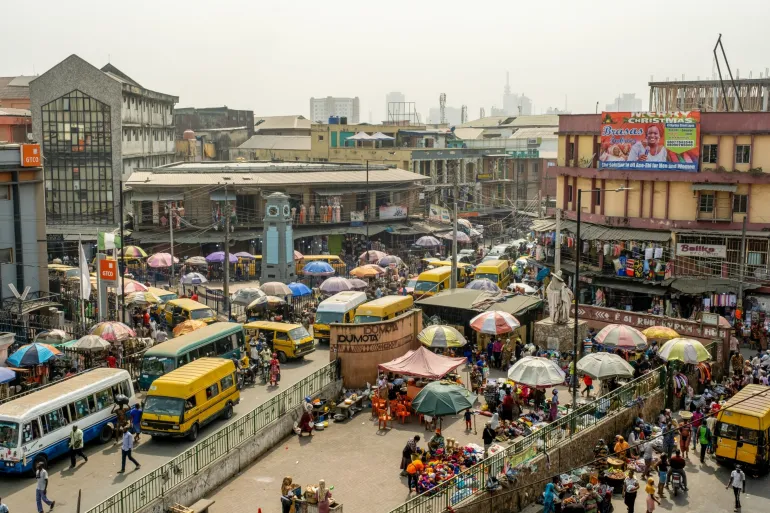- The latest Stanbic IBTC Bank Nigeria PMI shows most companies continued to report less demand, attributable to an increase in the cost of products.
- Nigerian industries reported the sharpest rise in input costs and output prices in six months.
- High pump prices, transportation, and materials for manufacturers continued to hurt businesses in the month under focus.
Inflation in Nigeria
Rising inflationary pressures in Nigeria hit businesses hard at the close of the third quarter, with selling prices increasing by the sharpest margin in six months. The country’s private sector reported marginal job opportunities in September, the lowest in the previous three months.
According to Stanbic IBTC Bank Nigeria PMI, most companies continued to report less demand, attributable to an increase in the cost of products amid thinning incomes. Findings show that business confidence dipped in September and was the second lowest level on record, only just above July.
“Nigeria’s PMI remained below the 50-point mark for the third consecutive month, settling at 49.8 points in September from 49.9 points in August,” noted Muyiwa Oni, Head of Equity Research West Africa at Stanbic IBTC Bank.
He added, “This points to a further fractional deterioration in business conditions, the third in as many months, largely due to challenging demand conditions amid the inflationary environment.”
Read also: Nigeria Secures $2.25 Billion World Bank Loan to Finance Economic Reforms
Inflationary pressures grip Nigeria’s economy
Nigeria’s economy experienced an increasing impact of inflationary pressures at the end of the third quarter, with companies reporting a significant uptick in input and output costs. According to the survey, between 12 and 26 September, markets experienced the sharpest rise in input costs and output prices in six months.
“Output increased in agriculture and manufacturing, but fell in wholesale & retail and services. Meanwhile, companies remained reluctant to hold inventories in September, cutting stocks of purchases for the second month running and to the largest extent since May 2020,” noted Muyiwa Oni.
“Inventories were reduced in line with falling output and muted customer demand. Elsewhere, input costs increased to their third steepest on record while output prices quickened to their fastest level in six months.”
Additionally, currency woes gripping the naira negatively impacted market purchase prices. In particular, pump prices, cost of transportation, and materials for manufacturers continued to hurt businesses.
However, because of higher crude oil production relative to the same period last year, the oil sector is likely to compensate for a lackluster non-oil sector’s performance, Stanbic IBTC Bank Nigeria projects.
Read also: How Johann Rupert dethroned Aliko Dangote as Africa’s richest
Cautious approach
“Business activity was underwhelming in Q3:24 relative to Q2:24, implying that the non-oil sector may grow slowly in Q3:24 amid the triple whammy of high inflation rate, elevated interest rates, and currency volatility,” added Muyiwa Oni.
However, new orders increased for the second month in a row, albeit at a higher rate than in August.
Companies also maintained a cautious approach to inventory levels, lowering input stocks for the second month and to the most significant extent since May 2020. Firms were reportedly keen to eliminate work backlogs wherever possible, given the cost of holding goods.
The fall in inventories was recorded despite a renewed increase in purchasing activity, the first in three months. Meanwhile, suppliers’ delivery times continued to shorten solidly.
Overview of private sector activity in major African economies
In September, Kenya saw a marginal deterioration of business activity, with the Stanbic Bank Kenya PMI survey dipping below the neutral mark to 49.7 after recording a slight recovery in August to 50.6 following economic disruption in June and July due to nationwide protests.
“New orders and output were weak due to subdued consumer demand –notwithstanding some firms reporting increased client turnout and higher investments. The agricultural sector, wholesale and retail sectors and services recorded declines, though the manufacturing and construction sectors both ticked up,” explained Christopher Legilisho, Economist at Standard Bank.
In Egypt, survey data signaled a renewed decline in business conditions across the North African country’s non-oil private sector in September. At the same time, rising price pressures acted to dampen sales and slow business activity.
The S&P Global Egypt PMI shows that “output and new orders both declined at the sharpest rates since April, following the first expansion in the former metric for three years in August.”
“The downturn meant that August’s foray into growth territory (the PMI at 50.4) is still the only instance of improving business conditions since late 2020, with the PMI dropping to a five-month low of 48.8 in September,” said David Owen, Senior Economist at S&P Global Market Intelligence in an update.
During the month under focus, the continent’s most advanced economy’s private industry experienced growth gains as businesses eased from inflationary pressures. S&P Global South Africa PMI increased from 50.5 in August to 51.0 in September, posting above the 50.0 neutral mark for the second month. The reading was the joint-highest in just over two years (level with August 2023).
David Owen, Senior Economist at S&P Global Market Intelligence, stated, “The latest PMI data provides further assurance that the South African private sector economy is on the right track.’
